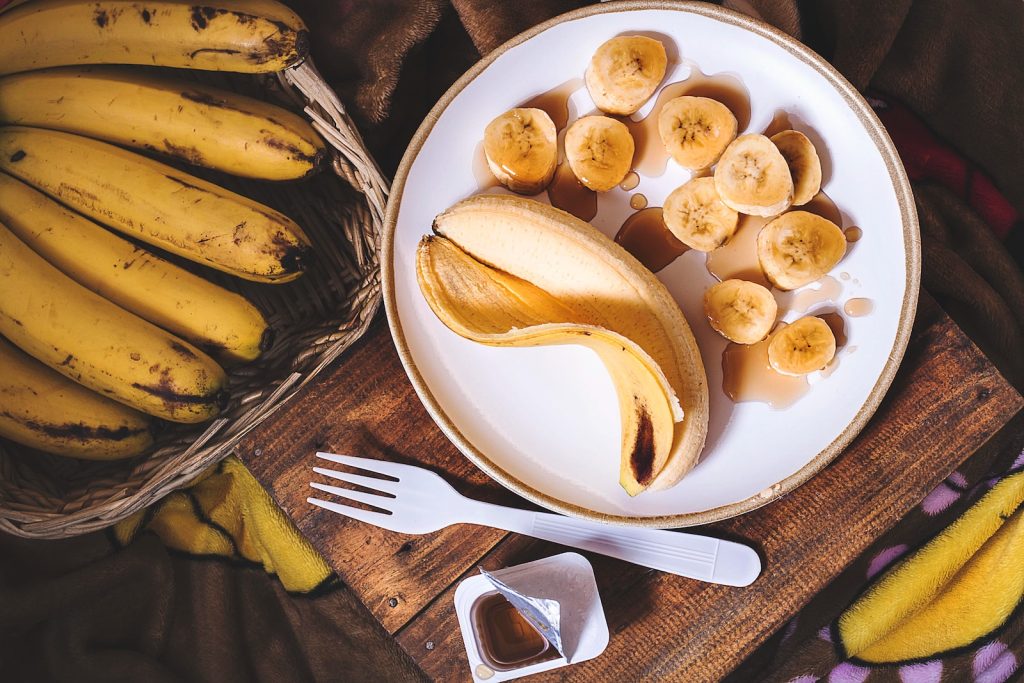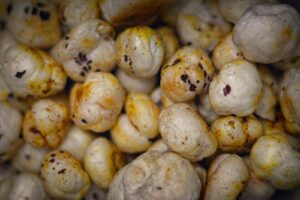As we all know, a fever and cold are very common illnesses that can affect anyone at any time. Both conditions can leave us feeling weak, tired, and with a loss of appetite. However, it is crucial to maintain a healthy diet to boost our immune system and aid our recovery. Bananas are a widely consumed fruit that is rich in nutrients, and many people wonder if they can eat them during a fever or cold. In this article, we will explore the benefits and drawbacks of eating bananas during a fever or cold and find out whether they are good for our health or not.
Introduction
Fever and cold are two prevalent illnesses that can cause discomfort to our bodies. When we have a fever or cold, our appetite may decrease, making it challenging to consume enough nutrients to aid our recovery. In this article, we will examine whether eating bananas during a fever or cold is a good idea, and what benefits or drawbacks they may have.
What is a Fever and Cold?
A fever is an increase in body temperature, usually above 100.4°F (38°C). It is a sign of the body’s immune system fighting off an infection. A cold, on the other hand, is a viral infection that affects the nose and throat. Symptoms of a cold include a runny nose, coughing, sneezing, sore throat, and body aches.
Importance of Diet During a Fever or Cold
Maintaining a healthy diet is essential during a fever or cold. Our bodies require adequate nutrients to recover and boost our immune system. A healthy diet can help reduce inflammation, fight off infections, and speed up our recovery. It is crucial to consume foods that are rich in vitamins, minerals, and antioxidants.
Nutritional Value of Bananas
Bananas are a nutrient-dense fruit that is an excellent source of energy, vitamins, and minerals. A medium-sized banana contains approximately 105 calories, 27 grams of carbohydrates, 3 grams of fiber, 14% of the recommended daily intake (RDI) of vitamin C, 10% RDI of vitamin B6, and 8% RDI of potassium.
Benefits of Eating Bananas During a Fever or Cold
Bananas have several benefits that make them an ideal food to consume during a fever or cold:
1. Rich in Nutrients
Bananas are rich in vitamins and minerals that are essential for our bodies. They contain vitamin C, vitamin B6, and potassium, which can help boost our immune system and aid our recovery.
2. Easy to Digest
Bananas are easy to digest and gentle on the stomach, making them an ideal food to eat during a fever or cold. They can help soothe an upset stomach and reduce nausea.
3. Provides Energy
Bananas are an excellent source of energy and can help combat fatigue, which is common during a fever or cold.
4. Hydration
Bananas are rich in water and can help keep our bodies hydrated. It is crucial to stay hydrated during a fever or cold as it can help reduce inflammation and promote recovery.
Drawbacks of Eating Bananas During a Fever or Cold
While bananas have several benefits, there are also a few drawbacks to eating them during a fever or cold:
1. High Sugar Content
Bananas are naturally sweet and contain a high amount of sugar. Eating too many bananas during a fever or cold can cause a spike in blood sugar levels, which can affect your body’s ability to fight off infections.
2. Low in Protein
Bananas are low in protein, which is essential for our bodies to repair and maintain our immune system. Eating too many bananas and not enough protein can hinder our recovery.
3. Allergic Reactions
Some people may have an allergic reaction to bananas, which can cause symptoms such as itching, swelling, and difficulty breathing. If you experience any of these symptoms after eating a banana, stop consuming them immediately and seek medical attention.
Precautions to Take While Eating Bananas During a Fever or Cold
While bananas are generally safe to eat during a fever or cold, it is essential to take some precautions:
1. Limit Your Intake
It is crucial to limit your intake of bananas during a fever or cold. Eating too many bananas can cause a spike in blood sugar levels, which can hinder your recovery.
2. Combine with Other Foods
To ensure that you are getting enough protein, it is advisable to combine bananas with other foods that are rich in protein, such as nuts, seeds, or dairy products.
3. Choose Ripe Bananas
Ripe bananas are easier to digest and contain higher amounts of antioxidants, making them a better option during a fever or cold.
4. Consult Your Doctor
If you have any underlying medical conditions or allergies, it is essential to consult your doctor before consuming bananas during a fever or cold.
When Should You Avoid Eating Bananas During a Fever or Cold?
While bananas are generally safe to eat during a fever or cold, there are a few instances where you should avoid consuming them:
1. Diabetic Patients
If you have diabetes, it is essential to monitor your blood sugar levels carefully. Consuming too many bananas during a fever or cold can cause a spike in blood sugar levels, which can be harmful to diabetic patients.
2. Allergic Reactions
If you have a known allergy to bananas, it is essential to avoid consuming them during a fever or cold.
3. Gastrointestinal Issues
If you are experiencing gastrointestinal issues such as diarrhea or vomiting, it is advisable to avoid consuming bananas as they can exacerbate these symptoms.
Other Foods to Eat During a Fever or Cold
In addition to bananas, there are several other foods that you can consume during a fever or cold, such as:
- Soups and broths
- Ginger
- Garlic
- Turmeric
- Citrus fruits
- Leafy greens
- Lean protein
How to Incorporate Bananas in Your Diet During a Fever or Cold
Here are a few ways you can incorporate bananas into your diet during a fever or cold:
- Slice a ripe banana and add it to a bowl of oatmeal or yogurt for breakfast.
- Freeze ripe bananas and blend them with milk and honey to make a healthy smoothie.
- Mash a ripe banana and spread it on a slice of whole-grain toast for a quick and healthy snack.
- Add sliced bananas to a bowl of chicken noodle soup for added nutrients and flavor.
Conclusion
In conclusion, bananas are a healthy and nutrient-dense food that can be consumed during a fever or cold. They are easy to digest, provide energy, and are rich in vitamins and minerals that are essential for our bodies. However, it is crucial to limit your intake and combine them with other protein-rich foods to ensure a balanced diet. It is also important to consult your doctor if you have any underlying medical conditions or allergies.
Overall, bananas can be a part of a healthy diet during a fever or cold, but it is important to consume them in moderation and combine them with other nutritious foods. By taking these precautions, you can reap the benefits of bananas while aiding in your recovery.
Frequently Asked Questions (FAQs)
- Can bananas cause a fever?
No, bananas do not cause fever. In fact, bananas are a nutritious food that can be consumed during a fever.
- Can bananas cure a cold?
While bananas cannot cure a cold, they can be a part of a healthy diet that can aid in your recovery.
- How many bananas can I eat during a fever or cold?
It is advisable to limit your intake of bananas during a fever or cold and consume them in moderation.
- Can eating too many bananas cause harm?
Eating too many bananas can cause a spike in blood sugar levels and hinder your recovery, so it is important to consume them in moderation.
- What are some other foods that can be consumed during a fever or cold?
Some other foods that can be consumed during a fever or cold include soups and broths, ginger, garlic, turmeric, citrus fruits, leafy greens, and lean protein.








